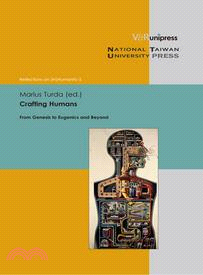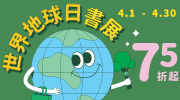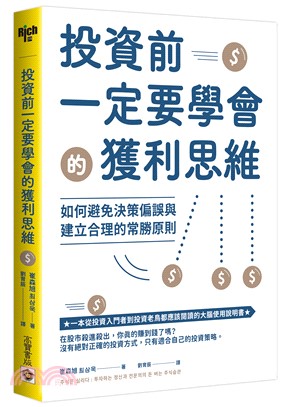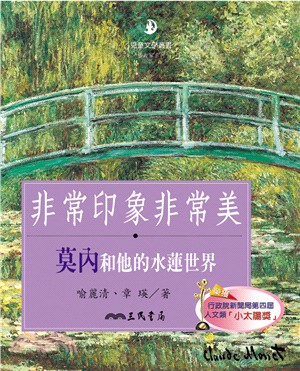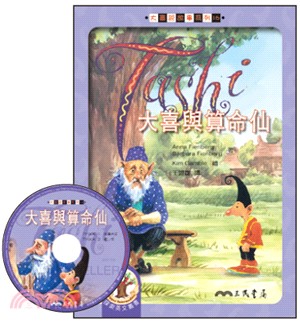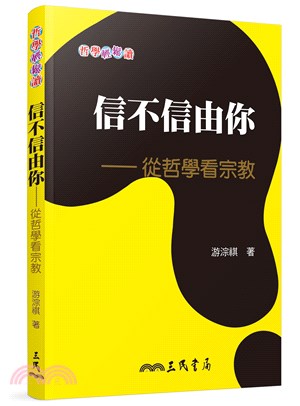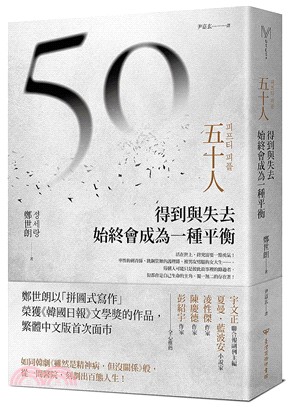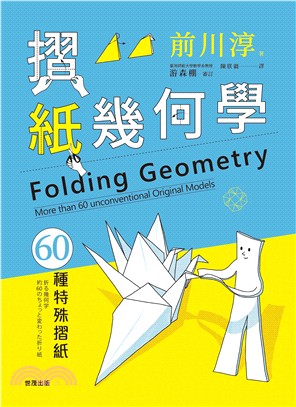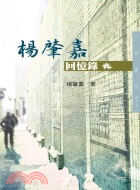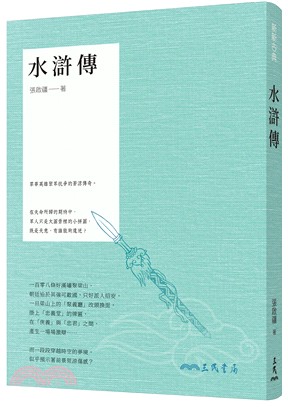Crafting humans:From Genesis to Eugenics and Beyond
- 系列名:Reflections on (In)Humanity
- ISBN13:9789860361599
- 出版社:臺大出版中心
- 作者:Frank Ankersmit; Alison Bashford; Merryn Ekberg; Roger Griffin; Moshe Idel; Antonis Liakos; Maria Sophia Quine; Marius Turda
- 裝訂/頁數:精裝/198頁
- 規格:24cm*15.5cm*1.7cm (高/寬/厚)
- 出版日:2013/04/03
再享89折,單本省下50元
商品簡介
作者簡介
Marius Turda is Reader in Central and Eastern European Biomedicine, Oxford Brookes University, and irector of the Cantemir Institute, at the University of Oxford. His current areas of research are mainly history of ideas and medicine, with a particular focus on eugenics, biopolitics, and race. Recent publications include Modernism and Eugenics (Palgrave, 2010), Health, Hygiene and Eugenics in Southeastern Europe to 1945 (CEU Press, 2011), and Re-Contextualising East Central European History: Nation, Culture and Minority Groups (Legenda, 2010). At the moment he is completing a history of Hungarian eugenics to be published by Palgrave and a monograph on race and modernity to be published by Continuum.
序
序
This volume is based partly on papers presented at the Berendel Foundation’s
second annual conference held at Queen’s College, Oxford between 8 and 10
September 2011. The conference benefitted from the generous financial support
of the Berendel Foundation and the Wellcome Trust (Grant no. 096561). I am
grateful to these two institutions and to the participants for making the conference
the success that was.
‘Crafting humans’ – and its corollary human enhancement – is a contested
topic, both in medical sciences and the humanities.With continuing advances in
science and technology, scientists and the general public alike are aware that the
basic foundations of the human condition are now at stake. This is amply evidenced
in the ‘Superhuman’ exhibition (19 July–16 October 2012) at the
Wellcome Collection in London. One important message of this exhibition is that
the human body could be changed and transformed through the enhancement of
basic physical and mental capacities. Yet, the current discussion of human enhancement
– as illustrated by the specialists invited to contribute and whose
opinions have been recorded for the exhibition – has largely ignored the (pre-)
history of theories of social and biological improvement. The biological malleability
of the ‘human’ is something that is now taken for granted but this volume
questions this aptitude to change and improve humans, highlighting three
critical aspects: the role of religion; the importance of historical time and the
corporeality of historical subjects, like races, nations and societies. Despite the
rapid growth of interest in the interconnectedness of technological progress,
biomedical sciences and ethics, alongside the health benefits of recent discoveries
in genetics and genomics, discussing current theories of human enhancement
within their historical, religious, philosophical, and cultural contexts,
from Antiquity onwards, remains yet to be achieved. In the decisive debates
over the excesses and disastrous effects of human dreams of perfectibility
(particularly since the Holocaust), the problematic connotations of ‘crafting
humans’ are ever present. And if this prompts us to be more careful when
discussing the intellectual sources of contemporary technologies of human
improvement, than it is crucial that we take such claims seriously. Understanding
the human must, therefore, be as much a form of moral introspection
and historical responsibility as a quest for scientific knowledge and adaptability
to technological progress.
This volume is but a modest contribution to this growing body of work. To
some extent, it complements the Wellcome exhibition on the ‘Superhuman’ by
considering the historical, ethical, and philosophical questions raised by the
project of crafting and enhancement. The chapters included here offer insights
into some of the reflections and imaginaries that have inspired and legitimated
both theoretical and practical programmes for ‘crafting’ humans, ranging from
the religious/spiritualist and the philosophical/cultural, to the secular and the
scientific/scientistic; from the mystical quest for human perfection, to the biopolitical
eugenic state of the twentieth century, and current genetic theories of
human enhancement. While vast bodies of scholarship have been devoted to
each of these individual topics, this volume discusses them in a synchronized
way, as interrelated variants of the most central story in history, that of human
perfectibility.
Above and beyond these general comments, there are some specific aknowledgements
that I would like to make. Firstly, for permission to reproduce the
photo on the cover, I am grateful to theWellcome Library, London. Secondly, due
to unforeseen circumstances Sorin Antohi could not join me in editing this
volume. However, my discussions with him about ‘crafting humans’ have been
inspiring and he has left a last inprint upon this volume. As such, I am grateful
for his unfailing support and encouragment. Thirdly, this volume would not
exist without the editorial support and occasional stylistic veto of Stephen
Byrne. This is certainly a better book as a result of our collaboration. Finally, the
volume is dedicated to Yehuda Elkana, who unfortunately passed away as this
volume was prepared for publication. His illness precluded him from submitting
his contribution but his complicitous humor and critical acumen, displayed so
vividly during the conference, are not forgotten. He was a great scholar and a
true friend.
London, 10 October 2012 Marius Turda
目次
Preface and Acknowledgements
Frank Ankersmit
Aftermaths and “Foremaths”: History and Humans
Moshe Idel
Crafting a Golem: the Creation of an Artificial Anthropoid
Antonis Liakos
The End of History as the Liminality of the Human Condition: From Kojève to Agamben
Roger Griffin
Bio-nomic Man (and Woman): Fantasies of Anthropological Revolution as a Reaction to Modernity’s Nomic Crisis
MerrynEkberg
Eugenics: Past, Present, and Future
Marius Turda
Crafting a Healthy Nation: European Eugenics in Historical Contex
Maria Sophia Quine
Making Italians: Aryanism and Anthropology in Italy during the Risorgimento
Alison Bashford
Julian Huxley’s Transhumanism
List of Contributors
Bibliography
Index of Names
書摘/試閱
書摘1
Crafting a Healthy Nation: European Eugenics in Historical Context --Marius Turda
The scholarship on eugenics has long been fragmented: until recently there has been relatively little cross-fertilization between work in the history of science, sociology, anthropology and other disciplines in the humanities. Research has also been fragmented along geographical lines: with relatively little comparative work undertaken and little awareness shown of the regional variations in understandings and configurations that characterized the reception of eugenic ideas in Europe and beyond. The last two decades have, however, seen an increasing number of attempts to redress these omissions. Such that, even those scholars of eugenics who are not comparativists, per se, have become increasingly aware of the broad spectrumof variations, in social, national, and gendered organizations, as well as cultural settings and political expressions, that can be encompassed within the field. This awareness, in turn, has informed the ways in which they describe eugenics, pose questions, and formulate answers.
This growing body of scholarship has reframed the study of eugenics in
broader and more integrated terms, generating a new direction of research that
is interdisciplinary and multi-factorial. The historiography on eugenics is finally
‘catching up’ with the main problems addressed by current debates, not only in
the medical humanities and bioethics, but also in broad historical fields like
sexuality, inequality, and disability. What is now emerging is a synthetic and
critical perspective, which, on the one hand, assesses the relationship between
eugenics and various political ideologies and cultural regimes, while, on the
other, shows how eugenics has provided some of the practical and conceptual
tools necessary for constructing the bio-technologically informed worldview
and ethics cultivated today. But, a crucial question remains unanswered: how
can this geographical and conceptual diversity be brought together into a normative
historical reading of both national and international histories of eugenics?
書摘2
Making Italians: Aryanism and Anthropology in Italy during the Risorgimento
Maria Sophia Quine
‘Italy is made; now we must make Italians.’
(Piedmontese Prime Minister, Massimo D’Azeglio, in 1860)
Aryan race theory was one of modern Europe’s most famous and pervasive myths of origin and descent. As the Prometheus of modern nations, states, and empires, Aryan Man was European Man personified. The quest to uncover the genealogy of Homo Europaeus captivated many people, working in many different European countries, for well over a century. For a long time, one of the idée-fixes in the scholarship about European science and culture was that Aryanism had no impact in nineteenth-century Italy. Mythologies about ancestral races emanating from foreign countries simply had no allure for Italians, Léon Poliakov argued in his pioneering work on the subject.1 Historians have begun to remedy this view in recent years. The primary focus of this new body of literature on Aryanism and racism has been the 1880s –1940s. However, an Italian or “Italo-Aryan” race was not “discovered”, or “invented”, for the first time at the end of the nineteenth century. Furthermore, Italian Aryanismand racism, under both liberalism and fascism, should not be seen solely as a function of meridionalism, imperialism, or ‘othering’ (Jews, Africans, or Southerners).
...............................................................................................
The new historiography of the Risorgimento should take heed of these for it has a tendency to see Italy as a museum piece and “the nation” as an edifice constructed solely by monuments, idols, and art. In its fixation on the heroic poetry, bel canto, pageantry, and painting of the long nineteenth century, the ‘new’ Risorgimento scholarship has largely ignored a vital part of the history of the ‘making’ of Italians. If historians wish to operate within rigid ‘canons’, science should be allowed entry into it and placed alongside the arts in a pan theon of patriotism. The ‘great’ men of Italian nineteenth-century anthropology comprised the triumvirate of Nicolucci, Mantegazza, and Sergi, who all produced ‘great’ works of fantasy, ‘fact’, and ‘fiction’ about the nation. According to the reasoning of some Italianists, however, their works shared more in common with the ‘German tradition’ of thinking about the nation in racial, biological, and ethnic terms than it did with the more familiar Italian style of nationalism derived from the straight-forwardly political ideas of Mazzini, Cavour, and Cattaneo. Italian ethno-anthropology operated within the domain of the discursive and the mental, which is the prime object of study of the so-called ‘cultural constructivists’. But it also became professionalized and institutionalized in the nineteenth-century, as it proffered itself to liberals in government as the premier public science. As it embedded itself in the bourgeois culture of universities and élites, it sought to be a part of the broader process of nation-building. The new ethno-anthropology did not see Italians as museum pieces, forever frozen on the page or the canvas in ritualized Roman salutes or stylized postures of self-sacrifice in battle. Rather, the three racial scientists that comprised the Holy Trinity of Italian anthropology viewed Italians as a work in progress, a living, organic mass of bones, bodies, and brains to be skilfully crafted into a popolo-nazione. Furthermore, they were all real patriots whose works aimed to fire the ‘hearts and minds’ of their fellowItalians. Beginning with Nicolucci, the triumvirs and patriots established scientific disciplines, political agendas, and cultural traditions that can be traced directly to those bio-political aspirations for a New Man, New Woman, and New Italy that constitute the very core of twentieth-century eugenics and fascism.
主題書展
更多主題書展
更多書展本週66折
您曾經瀏覽過的商品
購物須知
為了保護您的權益,「三民網路書店」提供會員七日商品鑑賞期(收到商品為起始日)。
若要辦理退貨,請在商品鑑賞期內寄回,且商品必須是全新狀態與完整包裝(商品、附件、發票、隨貨贈品等)否則恕不接受退貨。




